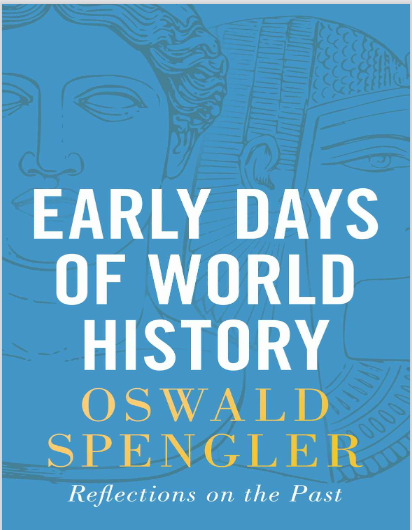Linkfest 2023-02-04: Prophet of Decline

There is a new English translation out of some of Spengler’s later writings, Early Days of World History. From discussion on Twitter, it appears that some of this material was covered by John J. Reilly in his review of The Prophet of Decline by John Farrenkopf.

Soaring — Chess in the Air: The Risk of Dying Doing What We Love
I love a good infographic, and I am an advocate of sharpening your mind by establishing a quantitative sense with ready access to numerical facts relevant to decision making. This article does both of those things.
I appreciate the logarithmic scale here, as quantitative and qualitative measurements of risk almost always use one.
The Fiamengo File: The Henpecked Hero
Masculine heroes: can’t live with ‘em, can’t live without ‘em. That seems to be the message of many police procedurals and legal dramas.
No matter how many times these heroes save the innocent and restore order, no matter the ability they demonstrate and the risks they willingly endure, they go home to an angry, dissatisfied woman—that is, if their woman is living in the same house at all. Often, they are divorced and still in love with the woman who walked out. Frequently there is also an unhappy teen daughter (almost never a son) whose rebellion is aimed squarely at the father and whose tantrums provoke his guilty conscience. This oft-repeated story, which almost never offers a happy ending or even a workable resolution to the hero’s family woes, suggests a repressed recognition by our culture of the continual betrayal of a masculinity both maligned and necessary.
The Deleted Scenes: The Shape of Metal
This is a great piece on the industrial complexity of something as simple as pasta shapes.
It also obliquely discusses a great peeve of mine about industrial policy:
Apple couldn’t easily commission these particular components reliably. How? It’s just a screw. But if you wish to make a screw, you must first invent the universe. Or, at least invent a full-dress tool-and-die manufacturing industry, one of whose outputs is a tiny screw.
Because it isn’t just the die. It’s the tools and machines that make dies. And the tools and machines that make those machines. And the ecosystem of engineering knowhow and tacit knowledge that make all of it run smoothly and efficiently enough to be competitive.
When we speak of knowledge, tacit or explicit, being lost in an industry, the term “competitive” usually does a great deal of work. It is pretty rare for knowledge of this sort to be completely lost, in the Cyclopean Walls sense, where in order to begin again you would start from literally nothing.
What is lost is the ability to compete in a market, on the terms set by the competition and the regulations and trade deals in place. Sometimes it actually means you can get the thing you want, just not at an acceptable price.
Kvetch: Wife economics and the Domestication of Man (Part II)
Part II of a wide ranging discussion on applied anthropology and how it shapes our societies.

With Both Hands: Fade by Daniel Humphreys
The Paxton Locke series is back after the previous publisher ceased operations. All the old affiliate links got broken, but this remains a favorite series of mine.
This book scratched an itch I didn’t know I had. It struck me as similar to a Tim Powers book, if Tim wrote adventures with a hint of satire instead of secret histories. Apparently I had been looking for a tale of good and evil in an occult setting. This book is it.
Comments ()